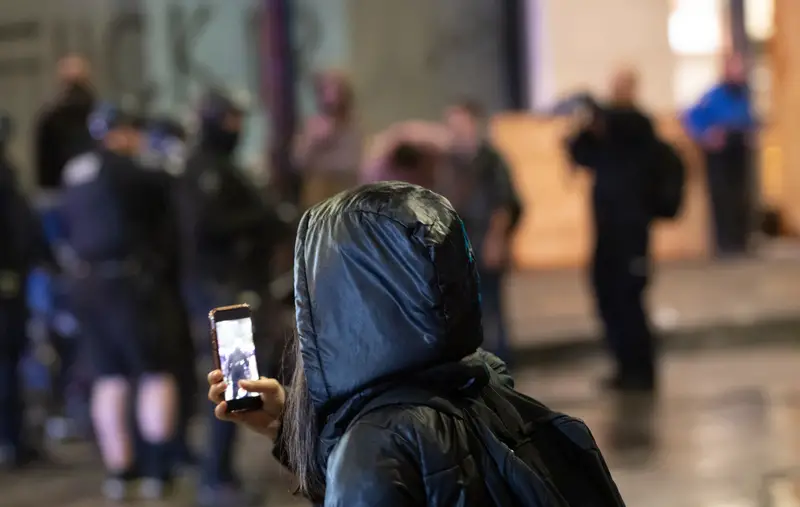A lawsuit is being filed by the American Civil Liberties Union (ACLU) against a new law that affects how the public, including news reporters and photographers, is allowed to film police activity they see in public.
The petition was filed by the ACLU and by Arizona news companies. They say that the law violates the First Amendment. The law is set to go into effect in September.
“This law is a violation of an essential constitutional right and will seriously thwart efforts to build police accountability. It must be brought down before it causes irreparable harm to the community,” the ACLU wrote in a statement.
The ACLU says that the law doesn’t only have First Amendment issues but is also unclear.
A law was signed by Arizona’s Republican Governor, Doug Ducey, in July. It makes it illegal to intentionally photograph or video police officers eight feet or closer without the permission of the officer. If the officer feels that the photographer is interfering in his or her activity, or if he or she believes the location is unsafe to the public, the officer can stop the photographer from filming.
The penalty for disobeying the law is a misdemeanor, which could result in a fine without jail time.
The creator of the law, a former police officer, Republican State Representative, John Kavanagh, says officers should be able to do their jobs without interference from onlookers. The law does not prohibit photographers from recording at what is considered to be a safe distance.
“First of all, I’m a retired police officer,” said Kavanagh. “I was an officer for 20 years in New York. If someone gets really close to you, especially from behind, you don’t know if they’re an accomplice or friend who’ll attack you.”
The law, at the insistence of the ACLU, has been previously modified.
People who are allowed to film are those who are not the direct targets of police involvement. If they are not detained or being searched, they are free to film. A passenger in a car who is pulled over or questioned by the police is allowed to record the interaction with the cops. These changes, according to Kavanagh, were made with the ACLU’s participation and approval.
News reporters say that the law makes it impossible for them to do their jobs. It makes them unable to get close up to a crime scene and record it.
Video footage and photograph taken by people on their cell phones are often used to document police brutality and misconduct, and play an important role in reporting to the public what’s going on.
A lawyer for the National Press Photographers Association, Mickey Osterreicher, summed it up when he said, “We fear that, rather than acting as a shield to ensure the safety of officers, this law will serve as a sword to defend the First Amendment’s “clearly established” right to stop police officers performing their official duties in the performing publicly on video,”











